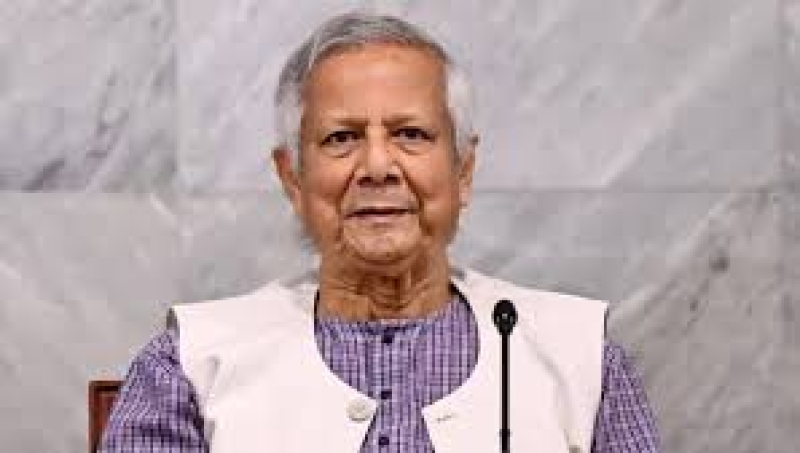- Young disabled people of BD vow to advocate for peace |
- World Leaders Urged to Defend Human Rights and Justice |
- Vegetable prices remain high, people buy in small quantities |
- Off-season watermelon brings bumper crop to Narail farmers |
- Climate Change Drives Deadly Floods, Storms, and Water Crises |
Yunus Urges Clean Energy Shift to Cut Fossil Reliance

Representational photo: Dr Muhammad Yunus
Chief Adviser Professor Muhammad Yunus has called for urgent action to reduce dependence on fossil fuels and embrace clean, affordable energy solutions to secure the country’s long-term economic and environmental stability.
Speaking at a virtual discussion on Thursday with Carl Page, Chairman of the Anthropocene Institute, Yunus said Bangladesh — one of the world’s most climate-vulnerable and densely populated countries — cannot afford delays in adopting safer energy alternatives.
“It is time for Bangladesh to seriously consider clean energy options, particularly large-scale solar projects,” he stressed, according to a statement from his office.
Advanced energy options discussed
Carl Page, brother of Google co-founder Larry Page, highlighted the potential of emerging technologies such as advanced nuclear systems and hybrid power solutions, describing them as reliable, low-carbon and cost-effective.
He said barge-mounted nuclear reactors could provide stable electricity to Bangladesh’s industries for decades with minimal maintenance costs. He added that global financial institutions, including the World Bank, are increasingly willing to finance nuclear energy, while countries like Indonesia have already begun deploying such technologies.
“Bangladesh has the innovative capacity to lead the clean energy transition,” Page said, adding that adopting advanced systems could create jobs, stabilise energy prices, and strengthen competitiveness.
Solar energy prioritised
Yunus welcomed Page’s insights but stressed the importance of thorough research before considering nuclear options. He noted that the interim government has recently adopted a new national power policy prioritising solar energy expansion.
“We will certainly explore these opportunities,” Yunus said. “But what is clear is that Bangladesh must sharply cut its reliance on fossil fuels.”
The meeting was also attended by Chowdhury Ashiq Mahmud Bin Harun, Executive Chairman of the Bangladesh Investment Development Authority (BIDA), and Lamiya Morshed, Senior Secretary and SDG Coordinator.

